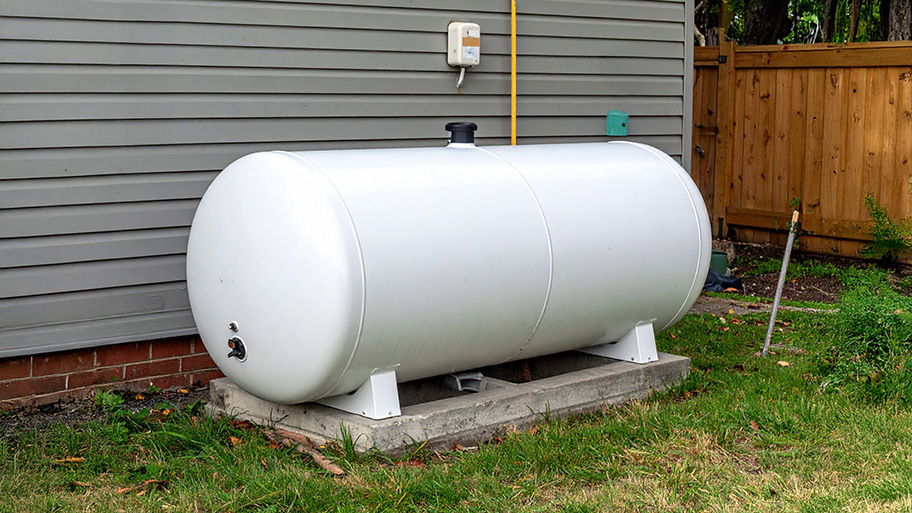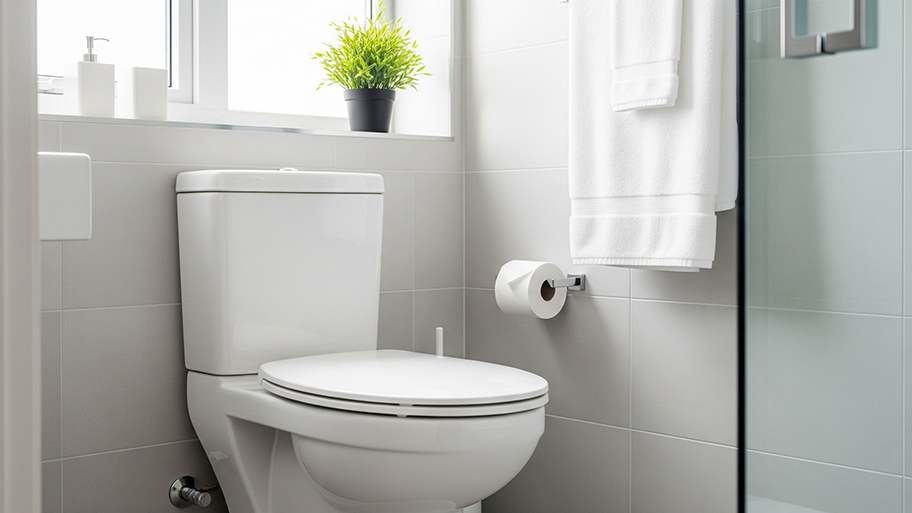
The average propane tank costs between $600 and $2,500, depending on the size, location, and more. Our expert guide explores all the factors.
Plumbing costs depend on your project and location. Check with a local pro for your specific job.
Denver's expansive clay soil can shift foundations and damage plumbing.
Extreme temperature swings create seasonal plumbing emergencies.
High-altitude conditions may affect water pressure and appliance performance.
Older neighborhoods may need significant plumbing updates.
Plumbing upgrades can appeal to buyers in Denver's competitive market.
Plumber costs in Denver run about $374 on average. However, homeowners in Denver often pay between $203 and $544, with smaller jobs, such as fixing leaks, on the lower end and major projects, like sewer line replacement, pushing costs higher. Denver's expansive clay soil, dramatic temperature swings, and unique high-altitude conditions can all impact what homeowners pay for plumbing services.
Denver's expansive bentonite clay soil, extreme freeze–thaw cycles, and rapid urban growth all influence plumbing requirements and pricing throughout the metro area.
The complexity and scale of your plumbing project heavily influence the total cost. Small plumbing repairs, such as fixing a running toilet, repairing a leaky faucet, or clearing a clogged drain, cost between $120 and $300. Mid-range projects, such as new water heater installation or sewer line repairs, range from $300 to $2,000. Extensive work, such as complete home repiping or sewer replacement in historic areas such as Capitol Hill or Highland, can exceed $4,000 due to aging infrastructure and unique property layouts.
Many older Denver homes, particularly those built between the 1920s and 1960s in historic neighborhoods such as Capitol Hill, Highlands, and Park Hill, still contain galvanized steel pipes or cast-iron systems that are increasingly prone to corrosion and mineral buildup. These aging systems can restrict water flow and may introduce contaminants as protective coatings deteriorate. Replacing galvanized pipes with modern PEX tubing not only improves water quality and pressure but also provides a more durable, freeze-resistant system.
Denver sits on expansive clay and bentonite soil that can swell dramatically when wet and shrink during the city's dry periods. According to the Colorado Geological Survey, these expansive soils can expand up to 20% by volume when exposed to water and exert pressures of up to 30,000 pounds per square foot. This constant movement can cause plumbing lines to shift, bend, and crack, resulting in leaks and breaks.
Denver's mile-high elevation affects water pressure and appliance performance in ways that coastal areas don't experience. Water heaters may require different venting requirements, and some fixtures may need pressure-adjusting valves to function optimally. Additionally, the lower atmospheric pressure can affect how appliances like dishwashers and washing machines operate, potentially requiring specialized installation or adjustment techniques that impact service costs.
The alternate freezing and thawing of water in the system can create cracks and weak spots, triggering leaks or breaks. Denver experiences dramatic temperature swings and winter freezes that can cause unexpected plumbing failures. Winter temperatures can plunge well below freezing for extended periods, while spring brings rapid thaws that stress plumbing systems. Emergency plumbing services cost one and a half to two times standard prices.

For residential plumbing projects in Denver, permit fees are based on the valuation of the work, as outlined in the City and County of Denver's official fee schedule. According to Denver's Building Permit Policy, projects valued from $1 to $500 require a $20 permit fee, while projects from $501 to $2,000 require a $35 permit fee. Larger projects follow a sliding scale based on total project value.
According to the Colorado State Plumbing Board, valid plumbing permits must be obtained before installing plumbing and are valid for one year from the date issued. Major installations, such as water heater replacement, repiping, or new line installation, require permits, while minor repairs, such as fixing leaks or replacing faucets, don't.
Some plumbing work qualifies for Quick Permits, which are issued without plan review for small projects that replace existing systems, including water heaters. Homeowners can obtain permits for work on their residences, provided the work is personally performed and properly inspected, but in most cases, your local plumber will handle permitting for you.
Understanding plumber pricing in Denver requires considering various factors, including project complexity, professional expertise, and the unique challenges of Mile High City properties. Here's a breakdown of what Denver homeowners can expect when planning their plumbing budget.
Plumbing professionals cost between $45 and $200 per hour in the Denver metro, though homeowners often find themselves paying premium rates for skilled contractors. Licensed plumbers with advanced certifications command higher fees, particularly for complex projects in older neighborhoods. The cost of gas line work or updating older systems to meet current Denver codes can exceed standard hourly rates.
Many Denver-area plumbing companies offer fixed-price quotes for straightforward jobs with predictable scope requirements. Standard services, such as unclogging drains or installing new fixtures, come with upfront pricing, allowing homeowners to budget accordingly. Complex projects, including full home repiping in historic neighborhoods such as Highland or Capitol Hill, require on-site evaluations. Plumbers assess factors such as accessibility issues, the condition of existing infrastructure, Denver's challenging soil conditions, and necessary materials before providing customized estimates.
| Service Type | Typical Flat Rate |
|---|---|
| Clearing clogs/drain snaking | $95–$500 |
| Water heater installation | $800–$2,000 |
| Repairing burst pipes | $1,000–$4,000 |
Denver plumbers charge diagnostic fees ranging from $100 to $250. This fee normally covers the first hour of work and travel time across Denver's extensive urban area. It's essential to verify whether diagnostic charges are included in your final bill or charged as a separate line item.
While not required, Denver homeowners commonly tip $20 to $50 for exceptional service or emergency repairs, particularly during Colorado's frigid winters when plumbers brave harsh conditions to restore essential home systems. Leaving positive online reviews also provides valuable recognition for skilled local professionals across the Denver–Boulder metro area.
For larger plumbing projects, you may need to hire additional professionals. Foundation specialists can assess soil-related damage, while HVAC technicians near you may be required for complex installations affected by Denver's altitude. Excavation contractors familiar with Denver's expansive clay soil can provide specialized trenching services for sewer line work.
Updated plumbing systems offer tangible benefits beyond immediate functionality, including improved efficiency, damage prevention, and enhanced market appeal to potential buyers. High-efficiency water heating systems, upgraded piping, and contemporary fixtures appeal to buyers seeking move-in-ready properties with reduced maintenance concerns. Denver's unique environmental challenges—including expansive clay soil and temperature extremes—make reliable, updated plumbing systems especially attractive to informed buyers who understand the local climate's impact on home infrastructure.
Home is the most important place on earth, which is why Angi has helped more than 150 million homeowners transform their houses into homes they adore. To help homeowners with their next project, Angi provides readers with the most accurate cost data and upholds strict editorial standards. We’ve surveyed thousands of real Angi customers about their project costs to develop the pricing data you see, so you can make the best decisions for you and your home. We pair this data with research from reputable sources, including the U.S. Bureau of Labor Statistics, academic journals, market studies, and interviews with industry experts—all to ensure our prices reflect real-world projects.
Want to help us improve our cost data? Send us a recent project quote to [email protected]. Quotes and personal information will not be shared publicly.
From average costs to expert advice, get all the answers you need to get your job done.

The average propane tank costs between $600 and $2,500, depending on the size, location, and more. Our expert guide explores all the factors.

A main water shut-off valve controls water flow for your entire home. Here we break down the cost to replace a main water shut-off valve.

We’ll cover the cost of replacing a shower or bathtub drain, whether you can tackle this repair yourself, and what other projects to consider along the way.

Severe winter weather causes well water pipes to freeze, obstructing water flow and leading to pipe bursts. Here’s what to do if your well water is frozen.

Installing a new kitchen sink involves removing the old sink and putting in the new one. Follow these steps to learn how to install a kitchen sink like a pro.

Find the right type of toilet tank flapper for your bathroom, including rubber, silicone, standard, adjustable, and dual flush.